Carla Garlaschi, artist and writer based in Stockholm, has shared working routes Chile-Sweden with artist Juan Castillo, whose artwork “Rites of Passage” (2013-2014) was intervened by Garlaschi with Alejandro Sanz’s ballad “Apprentice”. Both artists have lived during early stages of their lives on the Atacama desert. From here starts Garlaschi’s story.
By Carla Garlaschi | Images cortesy of Juan Castillo
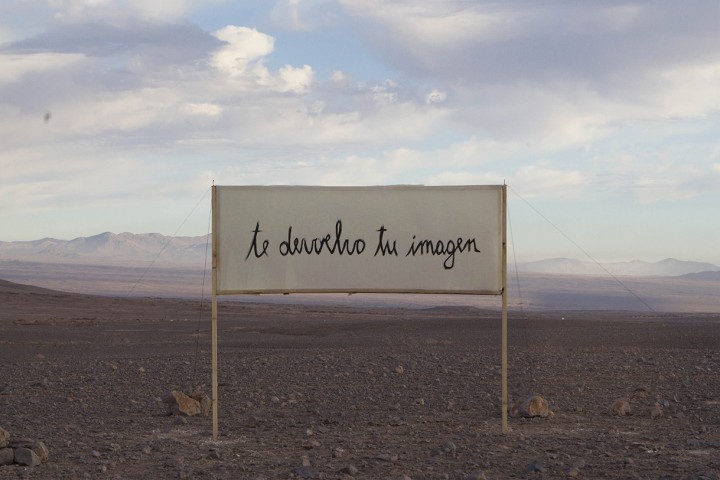
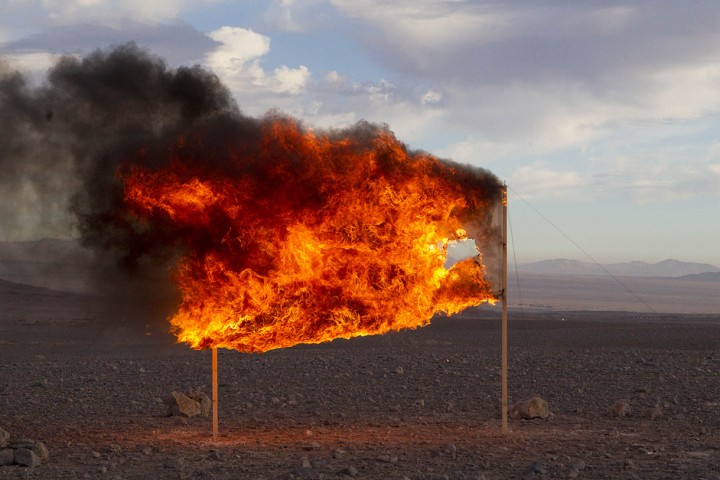
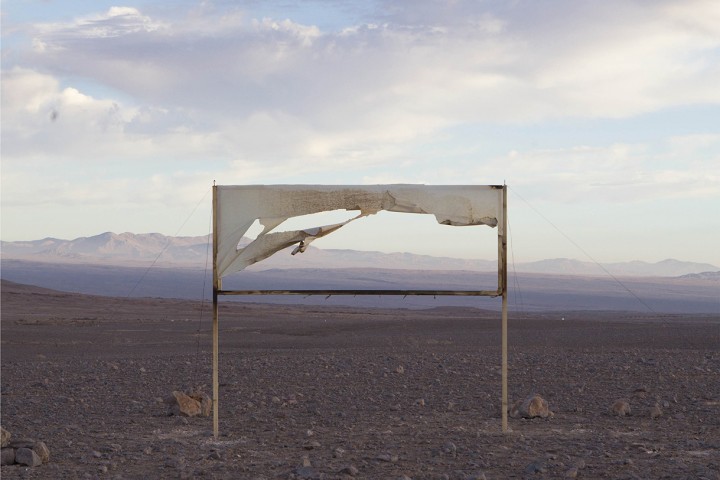
We had secretly left on a bike. I’d baked honey biscuits covered in lemon glaze, quite a Nordic flavor to have in the middle of the Atacama Desert. I put on some hot pants that day, and a light blue shirt I borrowed from Andrea. During those days I had let my hair grow long and I couldn’t care less about the world. Nothing really caught my attention… except for the radiance of Santiago’s skyline at night, that dawnish mirage rising up over the hills surrounding my suburb. Something stirred inside me somewhat like the prehistory of feelings, my body’s awakening, everything it takes to become a señorita. He was a second lieutenant, a junior officer in the Chilean Air Force, and was a blue-eyed dark-skinned sensitive man, the son of a commercial pilot and an older mother who spent her whole pregnancy in bed in order not to lose him. I went to visit him in Iquique, we had only been seeing each other for a month. We took off without my parents’ or his superiors’ permission; now we were riding up Iquique’s hills on the Honda Steed 600 his parents had bought him. We passed Alto Hospicio, passed the nitrate mines, passed sandy curves leaving the Pacific Ocean behind, where during moon-less nights we stared at seagulls floating in an atonal blackness. All of a sudden the motorcycle stopped. He didn’t know exactly how to handle the bike; I thought we would be stuck in that spot forever, in the middle of the road, without thirst or hunger, no hot or cold, left all alone to the uninterrupted contemplation of an almost endless horizon without any needs. It was the most open place I’d ever seen, I mean, the widest horizon on land. The engine must have warmed up because after a half-hour wait, the motorbike started again and we continued up the road. The curves were narrow. The cracks in the desert’s crusted sand reminded me of commercial spots for anti-aging creams, or, if you can excuse me for the inappropriateness of it in this story, anti-dandruff shampoos. All along the road which had been recently asphalted by Frei’s government, a white border had accumulated, looking like the foam of a dry sea. Parts of the road were still under construction; we whizzed by orange signs that read DANGER, and men with red and green hand-held signs. We didn’t speak, I was just holding on to him and I couldn’t care less about pretty much anything else, not about the History exam on Tuesday, nor about make-up, sunblock, not even the several burns on my skin from whenever my calf bumped the exhaust pipe. He drove like a beginner. I know that now from other men that have taken me for a ride. We almost crashed into a truck that appeared just in front of us, and I felt an indescribable reckless sensation of fear and adventure. I wouldn’t have minded dying there, because then I believed in reincarnation, soul mates, astral journeys and other stuff I can’t quite remember. I wasn’t interested in reading at all, just browsing fashion magazines, all of them showing skinny knees. My days consisted of waking up, having breakfast of tomatoes on toast, and a mango juice, then going down the beach to get the perfect tan. I couldn’t read the book on the nitrate towns I’d found at my uncle’s apartment, I would rather daydream turning from one side to the other on my towel covered with the Monoï Tiare oil I had traded for three kilos of potatoes (or was it a bottle of Pisco?) on Spring Break to Easter Island. Finally, we got to a village called Mamiña. We found a hostel and went in and registered. He got asked for his ID, then the clerk glanced at me and gave him an ugly look. He was 21, but I was only 16. It was the first time I had ever done something against the law, except for when I was 15 and covered for my dad going through Customs with the airplane parts he had smuggled from Miami. He sold them to the Chilean Air Force and air clubs so he could build his Georgian dream house, the enormous white elephant my parents would never be able to fully furnish.
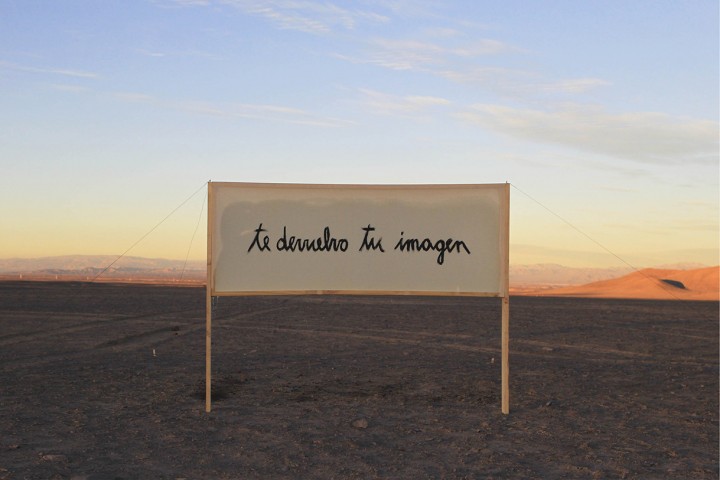
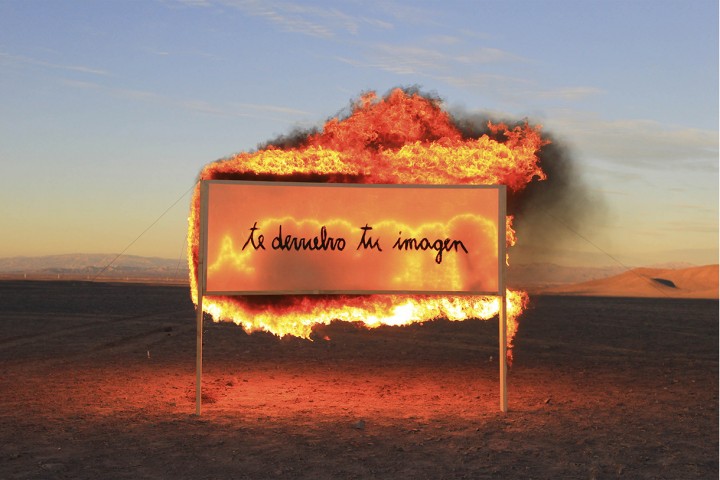
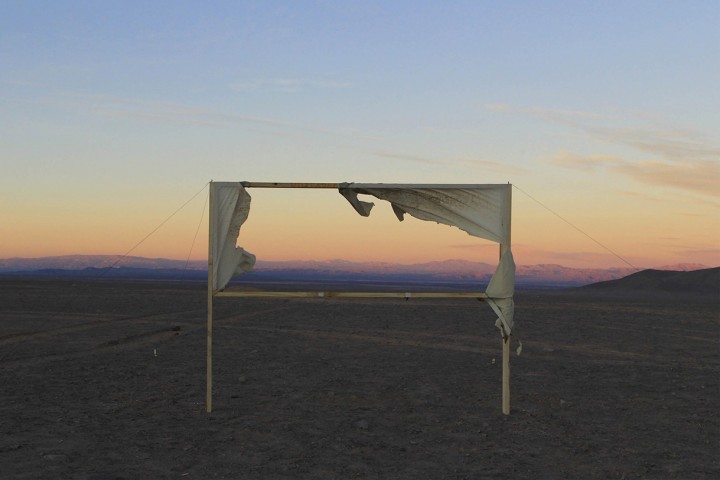
Nobody knew we were there, there were no mobile phones back then, no Internet. Nothing else really mattered. We spent the night at the hostel, watched Sábados Gigantes, and talked about Don Francisco, virginity and marriage. I said a few things I’d been taught at my Catholic school. We ate dinner. I got a bottled peach juice with the meal, he got a Coke. It was dark. I was awake all night and so was he. The next day I took a shower. There were scrambled eggs for breakfast and on the TV Ricky Martin belted out his song for the1998 World Cup in France, which launched him to global fame. The entire hostel smelled of sulfur, like putrid boiled eggs. I thought about the devil. There were empty flower vases in some corners. We wandered through the nearly uninhabited village, a place of white light and lime. We finally spoke again: “If you die, how do you want to be buried?” I asked and he said “I want to be cremated, and you?” For me it wasn’t that clear, but I supposed I also wanted to be cremated just like him. It got late and we needed to leave. The bike had no lights and the borrowed license plate was just held on by rubber bands. If we got stopped by the police it was a going to cost him a heavy fine and getting a sanction from his superiors. He drove me to the house of some friends of my parents were I stayed when visiting Iquique and we said good-bye. I had a flight back home and school the next day. Three weeks later, he died in a motorcycle accident in the middle of the desert. At the wake, lying in the coffin, it looked like he was sleeping with his mouth open. I almost thought he was sleeping but he had way too much make-up on, the brown suit didn’t suit him very well and he had a rosary around his neck. His comrades were taking shifts as honor guards to keep vigil over his body. Above him, there was an enormous mural of heaven with angels, poorly painted on several, but not less distasteful, shades of green, and crowned by a disfigured Christ. I told his mother to cremate him, but she thought otherwise and his body was interred in a slot in the wall of the armed forces institutional crypt.

 Español
Español